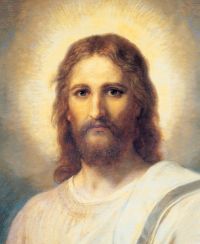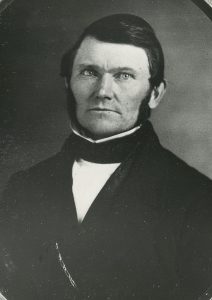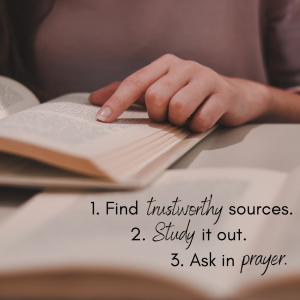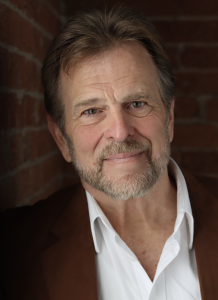We live in a day of confusion, even chaos. The world over, people are searching for truth on a host of subjects—but how can anyone know? It is not an easy search. Who do we trust? Where do we look? How do we know if something is in fact true? If the subject we seek to verify is purely secular, such as historical or even mathematical information, the search for the truth can be fairly easy given today’s technology.
But what do we do when our search for truth goes beyond what can be googled or found in a science book? Where can we look, and who can we trust when we want to know of eternal truths?
What is Truth?
As Jesus stood before Pontius Pilate, Pilate asked if He was a king. Christ answered, “Thou sayest that I am a king. To this end was I born, and for this cause came I into the world, that I should bear witness unto the truth” (John 18:37). To Pilate, this concept



was utterly foreign, for his reply, “What is truth?” (John 18:38), revealed not only how lost he was, but also how he was unable to recognize truth when he heard it.
Wilford Woodruff sought for Truth
Pilate was not alone in his dilemma. In the early 1800s, many people were endeavoring to discern truth from error. Wilford Woodruff was one of them. While attending one of many revival meetings, he listened in vain for something that rang true to him. When congregants were invited to stand and speak, he did so with the words, “Why do you not teach the people those principles that the ancient Patriarchs and Prophets taught while they were clothed with the revelations of God?” The preacher’s reply revealed a different mindset: “My dear young man . . . These things were given to the children of men in the dark ages of the world . . . Today we live in the blaze of the glorious gospel light, and we do not need those things.”1
We face the same challenge today
If you were sitting in that congregation, who would you believe? How would you know what was true? Even today we face the same challenges. As differing voices surround us, we must choose whose counsel we will follow. But how?
A pattern from the Savior
My father once passed along some wise counsel to me. He spoke of the order inherent in the Saviors’ teaching that we should first seek for wisdom when we do not know how
to proceed, then knock on Heavenly Father’s door and ask (see Matthew 7:7). My father explained that the Lord intended for us to ask and seek not only from Him, but from others whom He has already blessed with knowledge and answers. My father said that when he did not know what to do, whether Church related or not, he actively sought out trusted sources, diligently studied all he could on the subject, and then knocked, as it were—or made it a matter of prayer.
Heavenly Father’s door and ask (see Matthew 7:7). My father explained that the Lord intended for us to ask and seek not only from Him, but from others whom He has already blessed with knowledge and answers. My father said that when he did not know what to do, whether Church related or not, he actively sought out trusted sources, diligently studied all he could on the subject, and then knocked, as it were—or made it a matter of prayer.
- Seek out trusted sources.
- Study all you can.
- Make it a matter of prayer.
The Lord also helped Oliver Cowdery understand this process when He said, “Behold, you have not understood; you have supposed that I would give it to you, when you took no thought save it was to ask me. But, behold, I say unto you, that you must study it out in your mind; then you must ask me if it be right” (Doctrine and Covenants 9:7–8). This process is sure for subjects both secular and spiritual. Simply put, the Lord is not lazy. He expects us to do our part, and we may expect Him to do His. For a young Wilford Woodruff and for each of us personally, we would do well to follow my father’s and the Lord’s inspired counsel: when we have a question, we should find trustworthy sources, study it out, and ask God.
Endnotes
1 Discourse by Wilford Woodruff in The Deseret Weekly, April 6, 1889, p. 2, The Wilford Woodruff Papers, wilfordwoodruffpapers.org.

Craig Lindquist is an active member of The Church of Jesus Christ of Latter-day Saints. He is a father, grandfather, and great-grandfather, happily married to Dianna for the past 46 years. By trade he is a cabinetmaker, actor, and writer. He lives in Henderson, Nevada, except when he travels for film or for working on the construction of temples.
